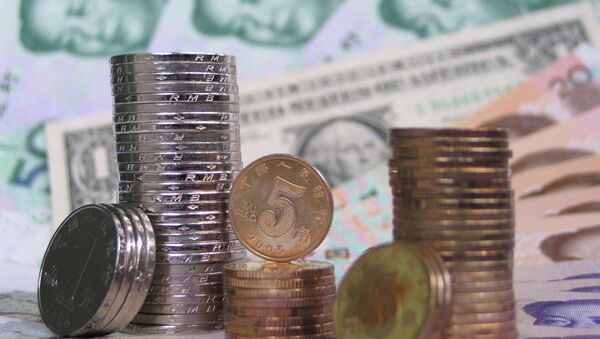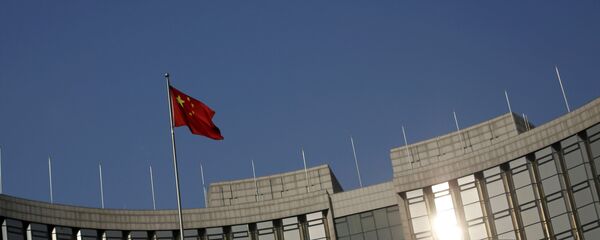Similarities between the current state of affairs in the mainland's economy and that in the US in the mid-2000s are particularly evidenced by China's credit expansion figures for March, Soros said on Wednesday, speaking at an Asia Society meeting in New York. Just during that month, the mainland's total indebtedness added 2.34 trln renminbi ($362 bln), borrowed by firms and local governments. Thing is, all debts in China are ultimately guaranteed by the central government in Beijing.
That "eerily resembles what happened during the financial crisis in the U.S. in 2007-08, which was similarly fueled by credit growth," Soros noted. "Most of money that banks are supplying is needed to keep bad debts and loss-making enterprises alive."
China's financing aggregate has been expanding rapidly starting in 2013, breaking through the ceiling of 2.5 trln RMB for the first time ever that January. A record 3.4 trln RMB of new loans were issued in January 2016, aimed at boosting infrastructure and broader investment, as well as in order to finance the largely slow structural reform. Yet, Soros insists, most of this money went to finance (repay or restructure) non-performing loans.
Previously, Reuters reported the total amount of non-performing loans in China nearly doubled throughout 2015, and in January this year reached a staggering 1.95 renminbi ($296.8 bln).
Soros' viewpoint, however, might seem biased somewhat, as recently he has been involved in a heated argument with mainland China's government, having made several critical remarks of Beijing's policies, and received sharp response from the latter. Yet, the numbers say China's economic model is indeed largely debt-fueled, in a similar fashion the US economy had expanded in early to mid-2000s, ending up in a massive crash when the volume of non-performing credits reached its critical mass.
"Whether we call it stabilization or not, I am not sure," Andrew Colquhoun of Fitch Ratings said. "From a credit perspective, we'd be more comfortable with China slowing more than it is. We are getting less confident in the government's commitment to structural reforms."
At this point, the government in Beijing is more concerned with the nation's financial markets after January's significant capital wipeout. On Thursday, Beijing suspended registration of new financial companies in an attempt to curb financial firms operating on the Internet, the Beijing-based magazine Caixin reported.
"We must check whether financial institutions that advertise are operating their businesses with legal financial licenses and what specific financial services they provide," Caixin's anonymous source in the government said.
The move will be in effect till January 2017, and is aimed at decreasing the currently massive scale of speculative trading in China's financial markets. For instance, Ezubo, an Internet platform for small investors, was terminated within Beijing's drive to improved quality of financial services. "95 percent of the investment projects on Ezubo are fake," Yong Lei, a former Ezubo owner said after being sentenced to 20 years imprisonment.
The latest Chinese tendencies generally fall in line with Soros' observations of the overwhelming corruption in that nation. The billionaire investor noted the current capital flight from China is paradoxically happening amidst Beijing's anti-corruption efforts. It is not clear yet whether that is an indication of the previously flourishing bribery linking governmental officials and financial sector bosses.
"There is a definite urge for people to diversify, to get your wealth out," Soros concluded.



